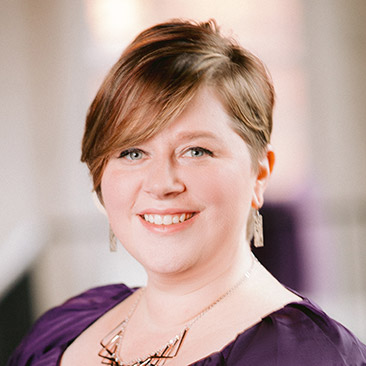Empowering Women To Find Powerful Mentors
Last week I was on a plane, chatting with an incredible woman who was going through multiple life changing situations. Her father had recently passed, she was transitioning into being an “empty nester,” and she was at a critical point in her career where she had to decide whether to continue on her current path or choose a different one. This woman, let’s call her Simone, was dealing with a lot of changes but she still exuded positivity and grace. Unfortunately, Simone was going through these changes on her own – without a mentor to guide her.
START AT THE TOP: Need a more extensive explanation of mentoring? Try our complete guide to mentoring.
Our conversation revolved around three ideas:
- Empowering Yourself for Mentorship
- Finding a Powerful Mentor(s)
- Prioritizing the Learning Relationship
1. Empowering Yourself for Mentorship
Simone is not alone but she feels like she is. Women have many reasons for not pursuing mentorship when they need it most. Sometimes it’s a feeling of not being “enough” – she’s not professional enough, earning enough money, high enough on the corporate ladder, her problems aren’t “big” enough, she hasn’t tried everything else she’s supposed to yet . . . you get the point. Sometimes it’s a feeling of “imposter syndrome”, where women feel that they have achieved what success they have through “luck” or “being in the right place at the right time”, rather than through their own hard work and skill. They often feel that seeking a mentor isn’t something they are worthy of. In working with women like Simone, when we dig down deep, we find thoughts of a lack of worthiness.. It’s all about the self-talk and the negative critic that sits on your shoulder, telling you that you aren’t good enough. Dealing with these challenges is exactly the kind of work that Powerful Mentoring is all about.

Powerful Mentoring is the concept of building a social learning relationship based on mutual trust and respect. In an impactful mentoring relationship for women, in particular, mentors will work with mentees to identify that negative self talk and examine how the self talk is impacting their lives and career, and then put practices into place to overcome the negativity with a focus on identifying worthiness and strengths.
2. Finding a Powerful Mentor(s)
When you have decided it’s time for a Powerful Mentoring relationship, where do you turn? If amazing mentors were easy to find, you’d have one already, right? First, remember that you probably need more than one mentor in your life. You might need a Professional / Technical Mentor who has reached accomplishments that you aspire to in a field that you are pursuing. You may need a Career Mentor who works in another field, but can provide perspective and objectivity regarding challenges you are encountering. Sometimes, you might even want to find a mentor for parenting, marriage, elder care or other lifestyle challenges. Be clear with yourself about what you need right now. Focus on identifying the appropriate set of experiences or skills that a mentor can bring to the relationship and will help you with your greatest immediate needs.
Next, look around you with an eye toward connection. Do you know someone who has a connection at a company you respect and admire? Have you connected on LinkedIn with someone who once did a podcast with a blogger you follow? Let your trusted colleagues know that you are seeking a mentor and a high-level idea of what you want to focus on, and ask them for recommendations. Attend professional association events, listen to podcasts, go to conferences, and shake hands with people like it’s your job until you meet someone who resonates with you. But keep your eye on the prize! It’s about forming connections that are meaningful and can help you grow within your current context, not just adding random names to your LinkedIn account.
3. Prioritizing the Learning Relationship
When you finally meet a Powerful Mentor (or two) and get started working together, make sure you do everything you can to make that relationship a priority. Your mentor has chosen to invest their time and energy in helping you. By mentoring you, they are showing you that they believe in you and that you are worthy of growth and development. The best way you can reciprocate is to do the hard work between meetings. When you wrap up conversations, make sure to commit to reasonable but challenging action items. The next conversation should start by reviewing those assignments. Show your mentor that you value the relationship, that you want to grow, that you know it’s important, and most of all, that you are honoring their investment in you!
As a woman, it can be a challenge to put yourself first, to justify investing in your own growth and development. You might have multiple priorities every day that pull you in a million directions. You might feel selfish taking the time to invest in a mentoring relationship instead of completing that one project, or getting the kids school supplies, or running groceries to your parents, etc. It might even be as simple as feeling like you don’t have enough time. These are excuses that keep you from moving forward to connecting with someone who can help you get back on the right path and find a way to achieve your goals.
Is Women-Centered Mentoring Available at Your Company?
Today, you can empower yourself to find a powerful mentor and prioritize your learning relationship. Identify what you need to work on most. Ignore self-talk or excuses that might get in your way. Make five new meaningful connections on LinkedIn or other social media accounts. Ask your colleagues for recommendations for someone who can be a powerful mentor.
If you already have a mentor, make sure to thank them and put a renewed effort into the relationship. If not, and if no mentoring options are available, it may be time to start a mentoring program for women. If you’re an HR leader, executive, or even someone who has the ear of decision-makers, let’s talk today about how to get started with mentoring programs for women.




